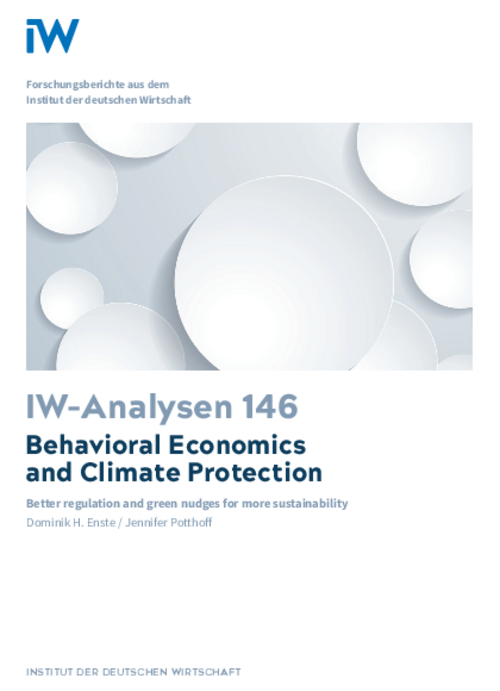Protecting the climate is one of the greatest challenges our society is currently facing. In view of the heated political and social discussions surrounding this topic, the question naturally arises as to whether behavioral-economic insights can be used to sensitize German society to the dangers of climate change and to motivate it towards more sustainability.

Behavioral Economics and Climate Protection: Better regulation and green nudges for more sustainability

Protecting the climate is one of the greatest challenges our society is currently facing. In view of the heated political and social discussions surrounding this topic, the question naturally arises as to whether behavioral-economic insights can be used to sensitize German society to the dangers of climate change and to motivate it towards more sustainability.
The field of behavioral economics provides empirical evidence of psychological factors that influence and even hinder sustainable behavior, ultimately leading to a gap between the will to act sustainably and actual behavior. Cognitive barriers, different social factors and group affiliations result in a complex system of diverse behavioral patterns, environmental attitudes, needs and expectations that must be considered when designing environmental policy instruments. People can be motivated to behave more ecologically without restricting their freedom of choice by the intelligent and effective use of green nudges rather than prohibitions. Identifying an effective, target-group-specific and ethical policy for counteracting climate change and encouraging more sustainable behavior requires an interdisciplinary approach combining behavioral-economic empiricism with ethical insights.

Behavioral Economics and Climate Protection: Better regulation and green nudges for more sustainability

More on the topic

Leadership in transformation: Megatrends and management as a driver of change
Leadership dynamics in companies are subject to constant change in order to meet the challenges of their time. Today, the greatest influences result from developments such as demographic change, globalization, individualization, structural change and ...
IW
Green Nudging – a key against littering?
The demand for cleanliness in cities is increasing: "Littering" - the illegal littering of public spaces - does not only cause costs for the environment and society, but also has significant financial consequences through increased cleaning costs.
IW